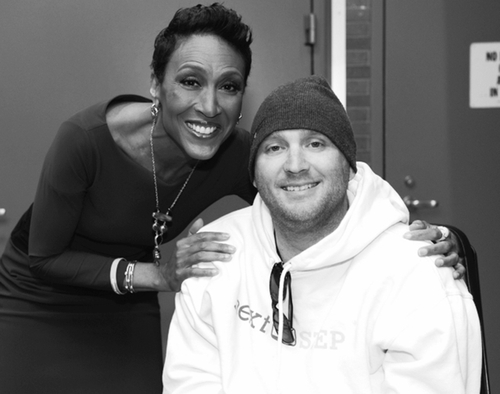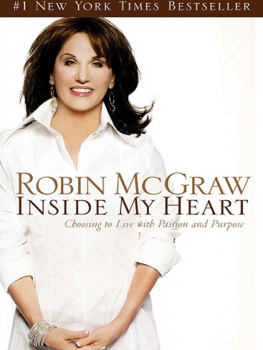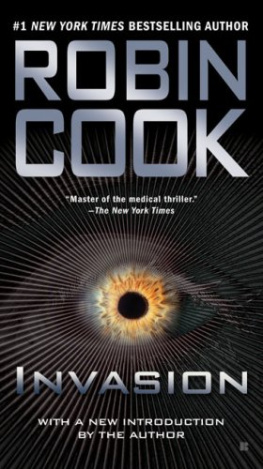The great Southern writer Zora Neale Hurston once said, There are years that ask questions and years that answer. For me, 2012 was a year that asked a lot of questions. Many of you who are reading this book followed my journey that year. Many of you are experiencing or caring for a loved one with a life-threatening illness. You know the questions that I asked in 2012. Whats that funny bump in my neck? What exactly is wrong with me? How will I find a donor who will be a match? Will the match take? Am I going to lose my momma? How will I survive without my mother? Will this illness kill me? The pain, the pills, the fatigue. Lord, please, give me strength, show my bodywhich is just falling apartsome mercy, because I dont know how much more I can take.
Im writing this book because I want you to know howduring the most difficult time in my lifeI lived the questions. I want to share with you the people and experiences that helped me make it through, day by day and sometimes moment by moment. In the church of my childhood we were urged to find the good and praise it. I promise you I will not sugarcoat my journey, but I do want to sing a praise song for the love that carried me through. This is a story about the genius of my doctors and nurses and the warmth and generosity of my colleagues. Its about the kindness of strangers and the strength, humor and comfort of old friends. In Mississippi, where Im from, theres an understanding that hard times do not discriminate. My mother used to say, Everybodys got something. This is the story of my something and my road to something better. And my hope is that you will find your better, too.
I was nine years old when my family moved from Izmir, Turkey, to Biloxi, Mississippi. To say it was a culture shock would be the understatement of the year. Even as a child, I took cues and comfort in the images that I saw on TV. There used to be a commercial, some of you are probably old enough to remember it: It was for RC Cola, and I loved the image of the little kid ambling down to the corner store to buy his bottle of soda pop. I remember clutching a shiny dime and doing the same thing. Those first few months in Mississippi, I was often lonely but not alone. It was me and my RC, and I dont even like cola.
The Gulf Coast slowly but surely became home. I was the youngest of four children. Old enough to remember our travels abroad, young enough to become acclimated to our new life in the South. My parents bought a home in Pass Christian. Its a small town, about twenty miles from Biloxi, with beaches as far as the eye can see. The Pass is just fifteen square miles, but theres the Gulf of Mexico to the south, the Bay of Saint Louis to the west and to the north, the bayou just goes on and on.
The house that I will always think of as home has four bedrooms, a screened-in sun porch, a piano in the living room and a basketball hoop over the driveway. When we bought the house in 1975, Mom insisted on having a fireplace built in the family room. A beautiful stone fireplace that we never used. After all, it doesnt get that cold on the Mississippi Gulf Coast. But Mom always wanted a fireplace, and a fireplace we had. Mom was like that. Shed get her mind set on something and that was that.
For as long as I can remember, Ive gone home to the Pass for the holidays. Its just not Christmas until I open the door and hear the little bell ring. I brought that bell back home for my mother after I covered the Lillehammer Olympic Games. The jingle it makes when the door opens is one of the sweetest sounds I know. Momma taught me to always treasure a memento from my world travels. Our home in the Pass is filled with beautiful pieces, reminders of all the places we lived when my dad was in the Air Force.
I welcomed in 2012 with Momma at our family home in the Pass. Usually when I entered the house, the first thing that greeted me after a warm hug from Momma was the aroma of something she was whipping up in the kitchen. Not this time. That was the first sign that Momma wasnt feeling well. She had battled illnesses for as long as I could remember. High blood pressure, heart disease, arthritis and most recently seizures. Momma had begun to suffer TIAs (transient ischemic attacks). Thats when blood flow to a part of the brain stops for a brief period of time. Momma would have strokelike symptoms for an hour or two but then, thankfully, return to normal. It was always so scary when that would happen.
Momma wasnt the only one feeling ill. I was, too. I didnt want to worry her, but I had been experiencing a bone-weary tiredness for a couple of months. I kept thinking Id shake it off and that I would be feeling better soon. Id been through worse. Or so I thought at the time. Plus I had the Oscars to get ready for the following month.
For the past few years, Ive been the host of the Oscars Red Carpet Live. Its like the pregame for Hollywoods biggest night. Lots of glitz, glamour and movie stars. In 2012, I arrived in Los Angeles feeling a little more tired than usual. Covering the Oscars is exhausting. I usually fly out Friday after Good Morning America. I stay at the hotel that is attached to the theatre where the Oscars are held. This makes it more convenient to go to rehearsals for the show. Plus I dont have to worry about wrinkling my Oscar dress in the car. I just walk from my hotel room to the Red Carpet.
That year I flew out to LA a day early to do a story on Janne Kouri. Janne was told he would never walk again. A freak accident in the ocean in 2006 left him paralyzed from the neck down. His then-girlfriend, Susan, told me the doctor looked her right in the eye and said: You need to prepare for him never to walk again. Before the accident, the six-four, 285-pound Kouri was a star defensive tackle on the Georgetown University football team with NFL prospects. His friends gave him the nickname The General for his take-charge attitude. His spinal cord was fractured in two places. During the two months he was in intensive care, Janne developed pneumonia and almost died twice. Susan told me there were many times he said to her, You dont need to do this. You dont need to be here. Susan told me, I promised him that as long as his heart and his mind stayed the same that I would love him.

The couple moved to Louisville to work with Dr. Susan Harkema. She helped develop a cutting-edge therapy known as locomotor training. The late actor Christopher Reeve, someone I was fortunate to meet, was among her first test subjects. The training teaches the spinal cord how to control motor functions like walking by using repetitive motion. After two months of intensive training, Janne had his first milestone, a little toe wiggle. And in May 2009, Janne took his first steps in three years with the assistance of a walker.












